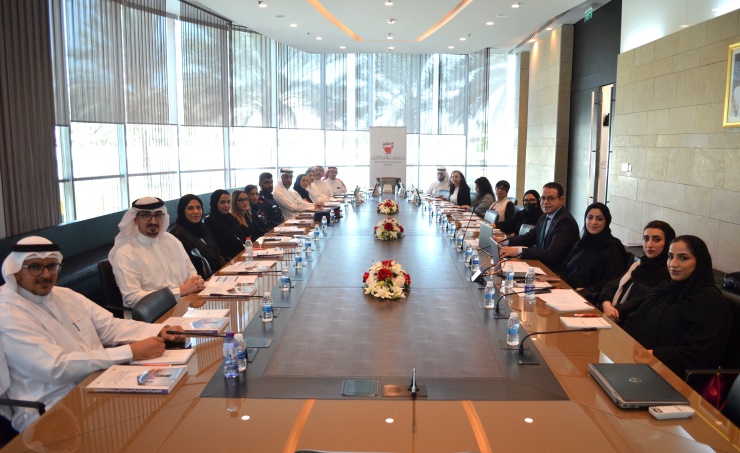Bahrain : Held in cooperation with the Ministry of Tourism, the Information and eGovernment Authority (iGA) delivered a workshop on improving the mechanisms behind gathering tourism statistics in the Kingdom of Bahrain. Over 20 government and tourism experts were in attendance.
iGA Director of Economic Statistics, Noora Khamis Al-Saadoon said that the workshop, which reflects the strong partnership between the iGA and the Ministry, is part of ongoing efforts towards improving the tourism sector, one of the most important contributors to the Kingdom’s national economy. Starting in 2015, Bahrain’s tourism statistics have been digitized as part of a multi-phased strategy to develop the sector. This led to enhancements in data sources in line with the recommendations of the World Tourism Organization (WTO) and the creation of a comprehensive statistics and information database, compiled from government entities using the Bahrain Open Data Portal (data.gov.bh). She highlighted the importance of indices and data in assisting government organizations and decision-makers in achieving national objectives and supporting the Kingdom’s development.
Al-Saadoon added that the main objective behind the workshop was to explore and exchange ideas on how to further develop data collection and production in coordination with relevant tourism entities. Another objective is discussing the technical aspects of the deployment of advanced technologies and improving government administrative records, which are necessary for meeting national, regional, and global statistical data collection standards, and tourism statistics in particular. This is in addition to providing the data entries necessary for the implementation of Bahrain’s tourism strategy and supporting decision-makers.
During her presentation on the current status of tourism statistics, Al-Saadoon covered the different stages of the national tourism statistics project, from the launch of the Kingdom’s tourism establishment surveys up until the present day. She highlighted a number of achievements by the iGA, in cooperation with the Ministry of Tourism, including the creation of a comprehensive database for tourism demand (visits, classifications, and expenditures of tourists), supply (products offered to tourists), and Tourism satellite Account (internationally approved accounting tool for calculating the contribution of tourism to the national economy), all of which help achieve the sustainable development goals and Bahrain’s Economic Vision 2030.
She added that statistical work underwent changes during the pandemic, which presented challenges in collecting field data using traditional surveys. This necessitated the exploration of alternative methods which utilize Big Data resources and administrative records. The iGA’s deployment of advanced technologies streamlined the collection of field data through the use of modern methods.
iGA tourism expert, Dr. Ahmed Rajab talked about the non-traditional data sources used in the collection and production of tourism statistics, as well as the main standards used in gauging incoming tourism. He highlighted some of the latest methods, including the monitoring of administrative, mobile phone, and bank card records. Ministry of Tourism Director of Monitoring and Licensing, Sinan Al Jaberi gave a presentation on the tourism data and statistical requirements of the ministry, where he emphasized the importance of keeping pace with current trends related to the monitoring of tourism data and statistics, and the sufficient need of deployment for advanced technologies in formulating future tourism strategies that help decision makers, considering the importance of the tourism sector as one of the main promising sectors that will be key sectors of the national economy in line with the announced strategy of the Government for Tourism for the coming years.
The workshop concluded with recommendations on how to improve tourism statistics in the Kingdom, most notably that non-traditional data sources, which are still under study by many countries and international organizations, should supplement and not replace current ones. The workshop recommended continued cooperation between government entities and utilizing data sources by creating an integrated system for tourism data that is effective in serving tourism decision-makers in the best way possible.


